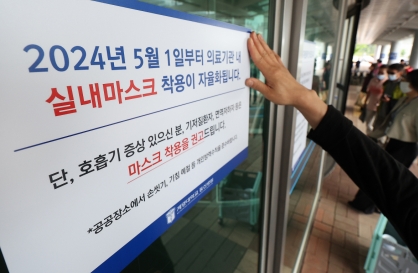It was hailed as a turning point. It was a long-awaited morale booster. At long last after 13 years the 159 countries were able to deliver. Amid much fanfare and festivities in Bali last December came the Trade Facilitation Agreement. TFA was a carefully selected stimulant to kick-start the WTO’s languishing multilateral trade negotiations initiated in Doha in 2001. It was supposed to be the “lowest hanging fruit” for the WTO member states and thus the best candidate for kindling.
Who would oppose the idea of reducing transaction costs and streamlining customs procedures globally? On top of that, the tangible benefits were obvious: estimates put the global collective gains at $1 trillion. An ambitious scheme for a “special and differential treatment” to help developing countries was also included. Everyone was happy and the plan succeeded ― almost.
customs procedures globally? On top of that, the tangible benefits were obvious: estimates put the global collective gains at $1 trillion. An ambitious scheme for a “special and differential treatment” to help developing countries was also included. Everyone was happy and the plan succeeded ― almost.
Regrettably, the bottle of champagne was opened too soon. The already-agreed-upon TFA was supposed to be officially adopted by the end of July after a final review of the wording of the text. The review was only for “legal scrubbing” and no substantive changes were to be made. So, the July deadline was meant to be largely a rubber-stamp procedure. In a surprising and unexpected turn of events, however, one of the major players ― India ― retracted her consent given in Bali at the last minute and the original deal is now on the verge of collapsing. New Delhi’s veto was triggered by its proclaimed concern that the agreement as drafted cannot guarantee the country’s right to food security.
For almost a year, since the inauguration of the current director-general in September last year, the trade facilitation issue has been treated as a beacon of hope for many watchers in this field. Symbolic as it is, if the light goes out, the psychological effects will be long-lasting and devastating. If the countries cannot seal a deal on even the seemingly easiest item, what about all the other controversial and complex items waiting to be addressed?
The about-face is perplexing to many, because concerns about food security were also at the center of last December’s negotiations in Bali and a compromise deal was reflected in the final package at the time. So, whatever the reason, the last-minute brinkmanship and taking back of the original promise are neither helpful nor appropriate for this particular agenda at this particular juncture. While every country has the right to backtrack on its consent before a treaty goes into effect, its counterparts would expect persuasive explanations of why a sudden reversal is warranted.
In retrospect, the opportunity that was lost over the past seven months looms large. Why did it take such a long time ― seven full months ― to scrub the text? The text of the agreement was already appended to the Ministerial Decisions of Dec. 7 last year, but the text was finalized only on July 15 this year. In fact, when the two texts are compared, only minor changes and adjustments have been made. Which then begs the question: what is the point of allocating such a long time for this administrative process?
Maybe it was the naive euphoria that allowed the critical momentum to slide away. The finalization should and could have been done much earlier with thorough planning. This is all the more puzzling because the draft text was almost there at the time a consensus was confirmed back in Bali last December. The members simply did not strike while the iron was hot.
The combination of the misplaced brinkmanship and naive ways of handling the post-consensus quibbles has claimed a hard-earned opportunity for the multilateral trade regime. With a renewed sense of urgency, key players may somehow agree to set a new deadline and manage to meet it. But for now, the failure could not have come at a worse time.
By Lee Jae-min
Lee Jae-min is an associate professor of law at Seoul National University. ― Ed.
Who would oppose the idea of reducing transaction costs and streamlining
 customs procedures globally? On top of that, the tangible benefits were obvious: estimates put the global collective gains at $1 trillion. An ambitious scheme for a “special and differential treatment” to help developing countries was also included. Everyone was happy and the plan succeeded ― almost.
customs procedures globally? On top of that, the tangible benefits were obvious: estimates put the global collective gains at $1 trillion. An ambitious scheme for a “special and differential treatment” to help developing countries was also included. Everyone was happy and the plan succeeded ― almost. Regrettably, the bottle of champagne was opened too soon. The already-agreed-upon TFA was supposed to be officially adopted by the end of July after a final review of the wording of the text. The review was only for “legal scrubbing” and no substantive changes were to be made. So, the July deadline was meant to be largely a rubber-stamp procedure. In a surprising and unexpected turn of events, however, one of the major players ― India ― retracted her consent given in Bali at the last minute and the original deal is now on the verge of collapsing. New Delhi’s veto was triggered by its proclaimed concern that the agreement as drafted cannot guarantee the country’s right to food security.
For almost a year, since the inauguration of the current director-general in September last year, the trade facilitation issue has been treated as a beacon of hope for many watchers in this field. Symbolic as it is, if the light goes out, the psychological effects will be long-lasting and devastating. If the countries cannot seal a deal on even the seemingly easiest item, what about all the other controversial and complex items waiting to be addressed?
The about-face is perplexing to many, because concerns about food security were also at the center of last December’s negotiations in Bali and a compromise deal was reflected in the final package at the time. So, whatever the reason, the last-minute brinkmanship and taking back of the original promise are neither helpful nor appropriate for this particular agenda at this particular juncture. While every country has the right to backtrack on its consent before a treaty goes into effect, its counterparts would expect persuasive explanations of why a sudden reversal is warranted.
In retrospect, the opportunity that was lost over the past seven months looms large. Why did it take such a long time ― seven full months ― to scrub the text? The text of the agreement was already appended to the Ministerial Decisions of Dec. 7 last year, but the text was finalized only on July 15 this year. In fact, when the two texts are compared, only minor changes and adjustments have been made. Which then begs the question: what is the point of allocating such a long time for this administrative process?
Maybe it was the naive euphoria that allowed the critical momentum to slide away. The finalization should and could have been done much earlier with thorough planning. This is all the more puzzling because the draft text was almost there at the time a consensus was confirmed back in Bali last December. The members simply did not strike while the iron was hot.
The combination of the misplaced brinkmanship and naive ways of handling the post-consensus quibbles has claimed a hard-earned opportunity for the multilateral trade regime. With a renewed sense of urgency, key players may somehow agree to set a new deadline and manage to meet it. But for now, the failure could not have come at a worse time.
By Lee Jae-min
Lee Jae-min is an associate professor of law at Seoul National University. ― Ed.
-
Articles by Korea Herald




![[Music in drama] Rekindle a love that slipped through your fingers](http://res.heraldm.com/phpwas/restmb_idxmake.php?idx=644&simg=/content/image/2024/05/01/20240501050484_0.jpg&u=20240501151646)

![[New faces of Assembly] Architect behind ‘audacious initiative’ believes in denuclearized North Korea](http://res.heraldm.com/phpwas/restmb_idxmake.php?idx=644&simg=/content/image/2024/05/01/20240501050627_0.jpg&u=20240502093000)



![[KH Explains] Will alternative trading platform shake up Korean stock market?](http://res.heraldm.com/phpwas/restmb_idxmake.php?idx=644&simg=/content/image/2024/05/01/20240501050557_0.jpg&u=20240501161906)








![[Today’s K-pop] Stray Kids go gold in US with ‘Maniac’](http://res.heraldm.com/phpwas/restmb_idxmake.php?idx=642&simg=/content/image/2024/05/02/20240502050771_0.jpg&u=)